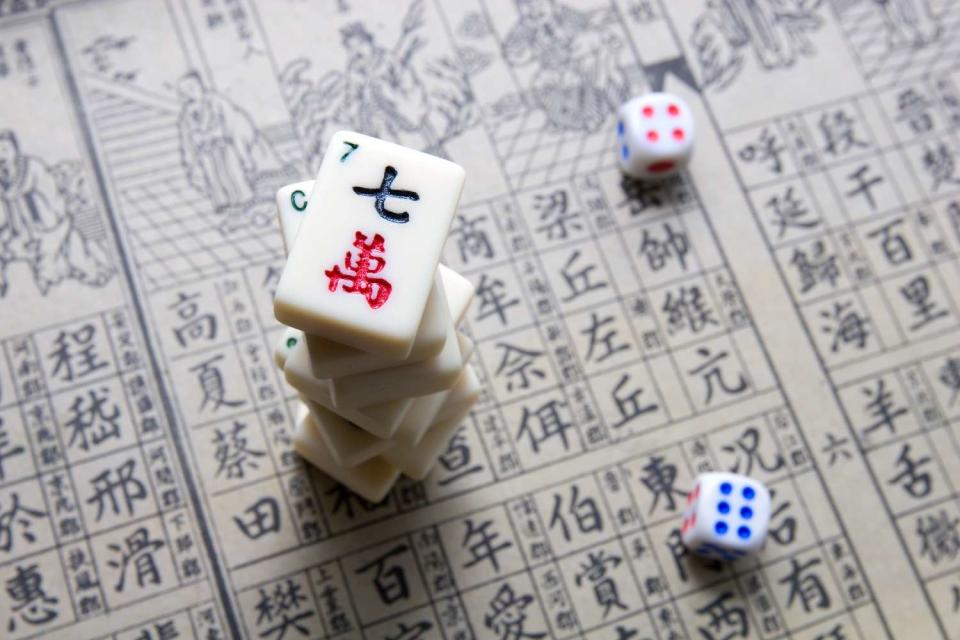Science Says Playing Mahjong Could Supercharge Your Mental Health
Mahjong was born in China in the 19th century, having spawned from many different variations of similar games that were played in ancient societies for hundreds of years. But it wasn't until the 1920s that the game of intense strategy and skill made its way to the United States. When it did, though, it was a hit: A Stanford University report says many Americans from different cultures immediately took to the game. But unlike other beloved board games, new research published in the journal Social Science & Medicine suggests that mahjong might provide players with more than just a fun reason to gather with friends.
According to research conducted by a team at the University of Georgia, mahjong players who regularly broke out their tile sets enjoyed reduced depression rates among middle-aged and elder Chinese adults. Per the research, the game of skill is a challenging hobby that can help keep your brain sharp, but the social aspect of mahjong may also impact holistic mental health overall. Researchers discovered the powerful link by studying different social activities and their influence on mental health in a Chinese population sample, with the help of scientists from Huazhong University of Science and Technology in China.
Related: Could Certain Video Games Help Doctors Identify Cognitive Decline?

Anykeen / Getty Images
The combined teams analyzed data collected from 11,000 residents over the age of 45 living in China; scientists categorized their social interactions, including hanging out with friends, playing team sports, volunteering in the community, as well as playing mahjong. The team found that those participating in a blend of different social activities on a regular basis had stronger mental health overall compared to those who did not. But the subset of those respondents who played mahjong frequently in city settings were also shown to have a vastly reduced risk of depression as well.
Researchers believe that benefit can apply to others who also take up mahjong more regularly—just as long as they don't use it as a means of gambling.
"Social participation manifests itself in different formats within different cultural contexts," says Adam Chen, one of the study's co-authors and an associate professor of health policy and management at UGA’s College of Public Health, in a press release. "Older Asian Americans have a much higher proportion of suicidal thoughts than whites and African Americans… Improving social participation among older Asian Americans may help to address this burden to the U.S. population that has not received due attention."

